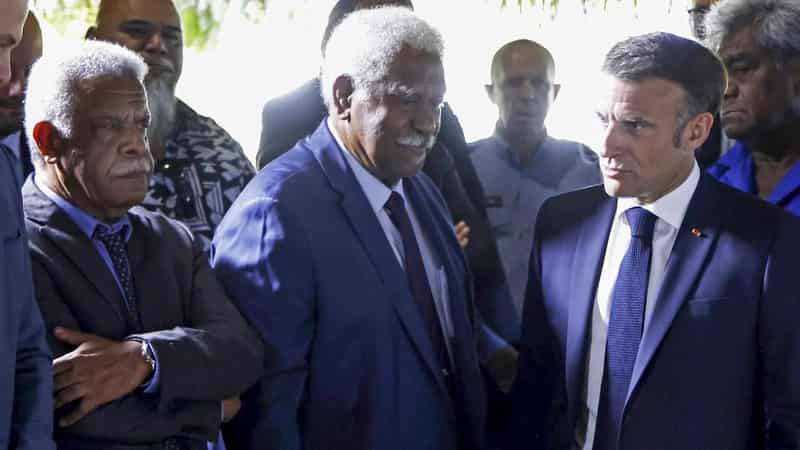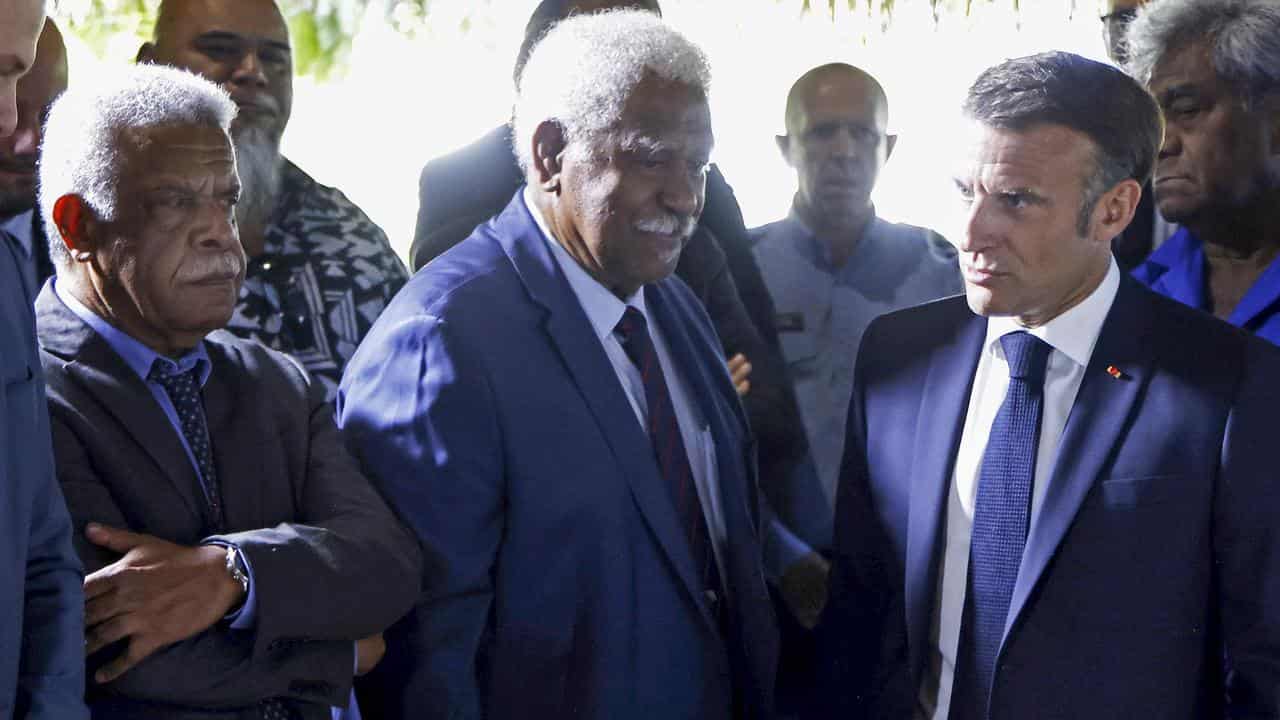
Police reinforcements in New Caledonia will stay as long as needed, President Emmanuel Macron has said after viewing areas devastated by deadly riots triggered by a contested electoral reform in the French-ruled Pacific island.
Macron's hastily arranged visit comes after six people were killed in riots that have left a trail of looted shops, torched cars and businesses since they began more than a week ago.
"In the coming hours and days, massive new operations will be scheduled where necessary, and republican order in its entirety will be re-established because there is no other choice," Macron said during a meeting with political and business leaders in the territory's capital Noumea.
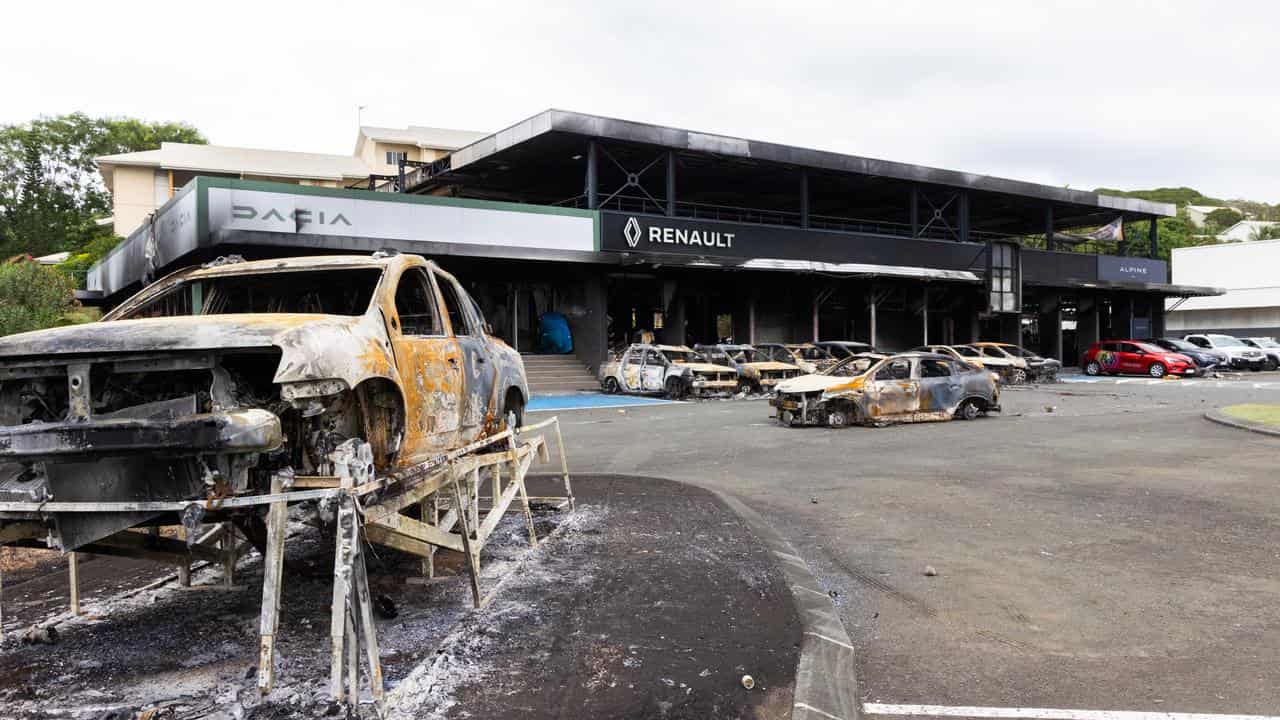
Roads across the island remained blocked by protester barricades, and residents shared advice on social media on safe routes to find food, petrol and medicine.
Macron earlier flew by helicopter over areas wrecked by arson, as bulldozers worked to clear away rubble.
Mayors from these worst-hit suburbs joined Macron's meeting at France's High Commission, along with pro-French and pro-independence leaders.
Describing the riots as "an unprecedented insurrection whose degree of violence no one would have anticipated", Macron said additional security totalling 3000 personnel would remain, even during this summer's Paris Olympics if required.
Beyond security, the key question was what announcement Macron could make regarding the contentious electoral reform.
It would allow thousands more French residents who have lived in New Caledonia for 10 years to vote, which Paris says is needed to improve democracy on the island, where almost a quarter of the population identifies as European, mainly French.
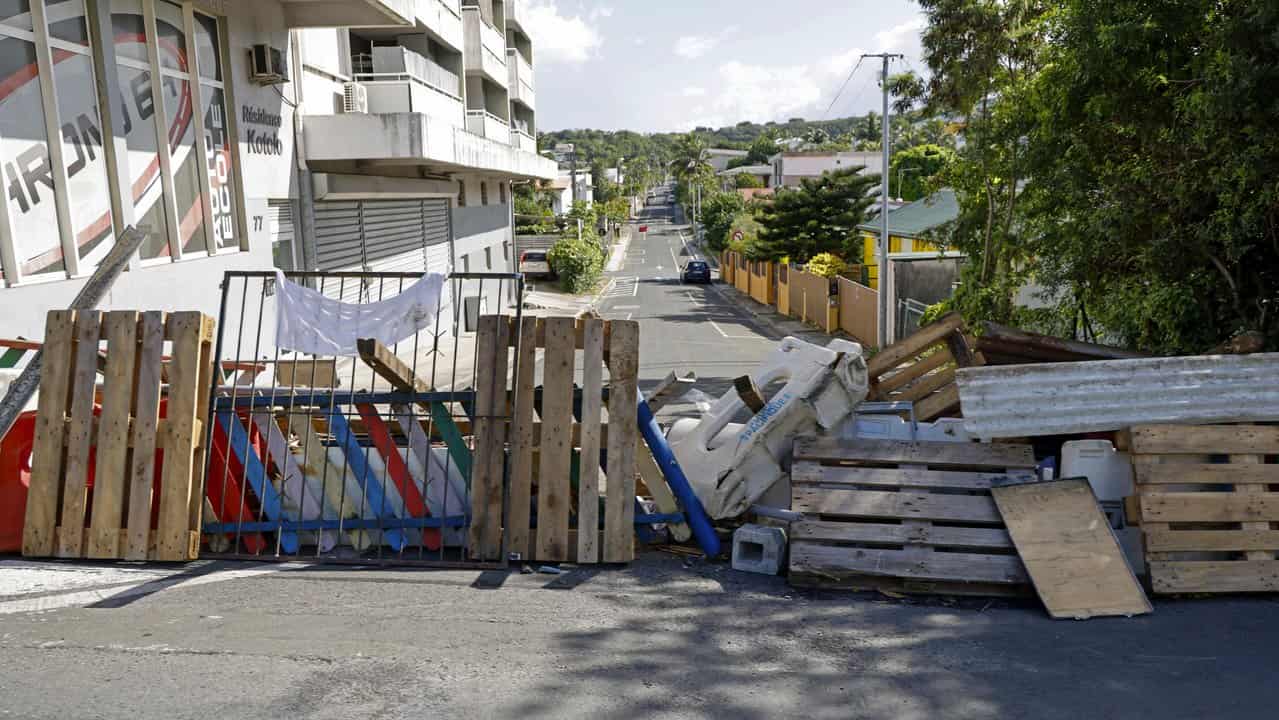
Leaders of the indigenous Kanaks who form the largest community - 40 per cent - want the reform rescinded over fears it will dilute the Kanak vote and make it harder for any future referendum on independence to pass.
Other local leaders want the reform to be suspended to give time for a broader dialogue over the island's future.
Electoral rolls were frozen by the 1998 Noumea Accord that ended a decade of violence by outlining a path to gradual autonomy.
But the pact's expiry in 2021, and a Kanak boycott of an independence referendum held during the COVID-19 pandemic, led to a political impasse.
In comments made to a group of youths, Macron gave no sign of wanting to backtrack on the reform, which MPs in Paris adopted last week but is yet to be ratified by a special congress of both houses of parliament.
"We're a funny country," he said.
"In France, foreigners (if they are EU citizens) can vote in local elections but people that have been here (in New Caledonia) more than 10 years are told, 'you cannot vote'."
Kanak political leaders meeting with Macron included the president of New Caledonia's government, Louis Mapou, and the president of its Congress, Roch Wamytan, who was a signatory to the Noumea Accord.
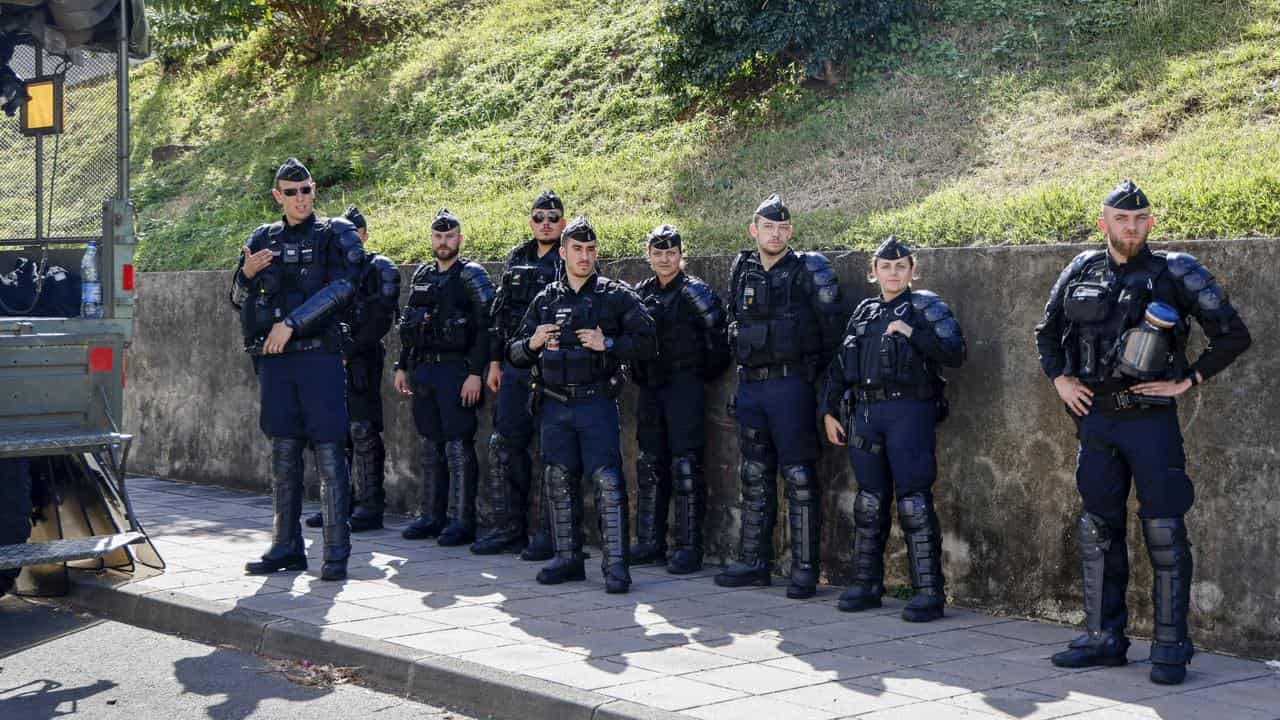
Before the meeting, the pro-independence Front de Liberation Nationale Kanak et Socialiste (FLNKS) bloc issued a statement saying it expected Macron to make a strong announcement that could "breathe new life" into dialogue.
Macron said the aim of the meeting, which included French loyalist politicians such as Sonia Backes, was to get all parties back around the table.
"Calming down cannot mean turning back the clock," he said.
"Calming down cannot mean disregarding the popular expression that has already taken place."
Coming out of the meeting with Macron, Georges Naturel, a New Caledonian representative in France's senate and the mayor of Dumbea where stores were set on fire, said society needed to rebuild differently.
Macron had told the meeting more security forces were coming.
"We are all convinced that this will not be enough," said Naturel, who belongs to the conservative Les Republicains party.
"We also need strong, political messages."
New Caledonia is the world's third-largest nickel miner but the sector is in crisis and one in five residents lives below the poverty threshold in a territory with huge economic inequalities.
